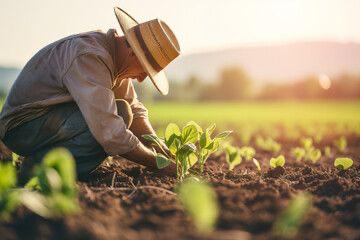Expert Tips: How to Improve Fruit Quality in Your Garden

Growing your own fruit in a garden can be incredibly rewarding, but achieving high-quality produce requires a bit of knowledge and effort. Whether you're a beginner or an experienced gardener, there are several strategies you can implement to improve the quality of the fruits you grow. From soil management to proper pruning, here’s how to ensure your garden yields the best fruits possible.
1. Choose the Right Varieties for Your Climate
Selecting fruit varieties that are well-suited to your local climate is crucial for producing high-quality fruits. Different fruit trees and plants have specific temperature, humidity, and sunlight requirements.
Tips:
- Research the fruit varieties that thrive in your region's climate.
- Consult local gardening experts or agricultural extension services for recommendations.
- Opt for disease-resistant varieties to reduce the need for chemical treatments.
2. Enhance Soil Health with Organic Matter
Healthy soil is the foundation for producing high-quality fruits. Rich, well-drained soil provides essential nutrients and supports healthy root systems.
Tips:
- Regularly add organic matter like compost, aged manure, or leaf mold to improve soil fertility.
- Test your soil’s pH and nutrient levels and amend it as necessary to meet the needs of your fruit plants.
- Use mulch to retain moisture, suppress weeds, and add organic matter as it decomposes.
3. Implement Proper Watering Techniques
Consistent and adequate watering is vital for the development of high-quality fruits. Both over-watering and under-watering can lead to poor fruit quality and yield.
Tips:
- Water deeply but infrequently to encourage deep root growth.
- Use drip irrigation or soaker hoses to deliver water directly to the root zone, reducing water waste.
- Mulch around plants to conserve moisture and reduce the need for frequent watering.
4. Prune for Better Fruit Production
Regular pruning helps improve air circulation, sunlight penetration, and overall plant health, which in turn enhances fruit quality.
Tips:
- Prune fruit trees and shrubs during their dormant season to remove dead, diseased, or overcrowded branches.
- Train young trees with proper structure to support fruit load and prevent limb breakage.
- Thin excess fruits to allow remaining fruits to grow larger and better develop their flavor.
5. Feed Your Plants with Balanced Fertilization
Providing your plants with the right nutrients is essential for fruit quality. Both under-fertilization and over-fertilization can negatively affect fruit development.
Tips:
- Use a balanced organic fertilizer that includes nitrogen, phosphorus, and potassium.
- Apply fertilizers according to the specific needs of each fruit plant and their growth stages.
- Avoid excessive nitrogen, which can promote leafy growth at the expense of fruit quality.
6. Protect Against Pests and Diseases
Pests and diseases can significantly affect the quality of fruits in your garden. Implementing integrated pest management (IPM) practices can help maintain healthy plants.
Tips:
- Monitor your plants regularly for signs of pests and diseases.
- Encourage beneficial insects like ladybugs and lacewings that prey on harmful pests.
- Use organic treatments like neem oil or insecticidal soap for pest control, and apply disease-resistant practices such as proper spacing and sanitation.
7. Ensure Adequate Pollination
Proper pollination is essential for fruit set and quality. Inadequate pollination can lead to poor fruit development and reduced yields.
Tips:
- Plant a variety of pollinator-friendly plants to attract bees and other pollinators.
- For fruit trees, consider planting compatible pollinator varieties nearby.
- Hand-pollinate flowers with a small brush or cotton swab if natural pollination is insufficient.
8. Harvest Fruits at the Right Time
Harvesting fruits at their peak ripeness ensures the best flavor, texture, and nutritional value.
Tips:
- Learn the specific indicators of ripeness for each type of fruit you grow, such as color changes, firmness, or scent.
- Pick fruits gently to avoid bruising or damaging them, which can reduce their quality and shelf life.
- Store harvested fruits properly to maintain their quality until consumption or sale.
9. Use Organic Practices for Better Quality
Organic gardening practices contribute to the overall health of your plants and soil, leading to higher-quality fruits.
Tips:
- Avoid synthetic pesticides and fertilizers, which can harm beneficial soil organisms and reduce fruit quality.
- Practice crop rotation and companion planting to improve soil health and deter pests.
- Use compost teas and organic mulches to enhance plant nutrition and soil structure.
Conclusion
Improving the quality of the fruits produced in your garden involves a combination of proper plant selection, soil management, watering, pruning, fertilization, pest control, pollination, and harvesting techniques. By following these expert tips and embracing organic practices, you can enjoy delicious, high-quality fruits that are a testament to your gardening skills. Happy gardening!



